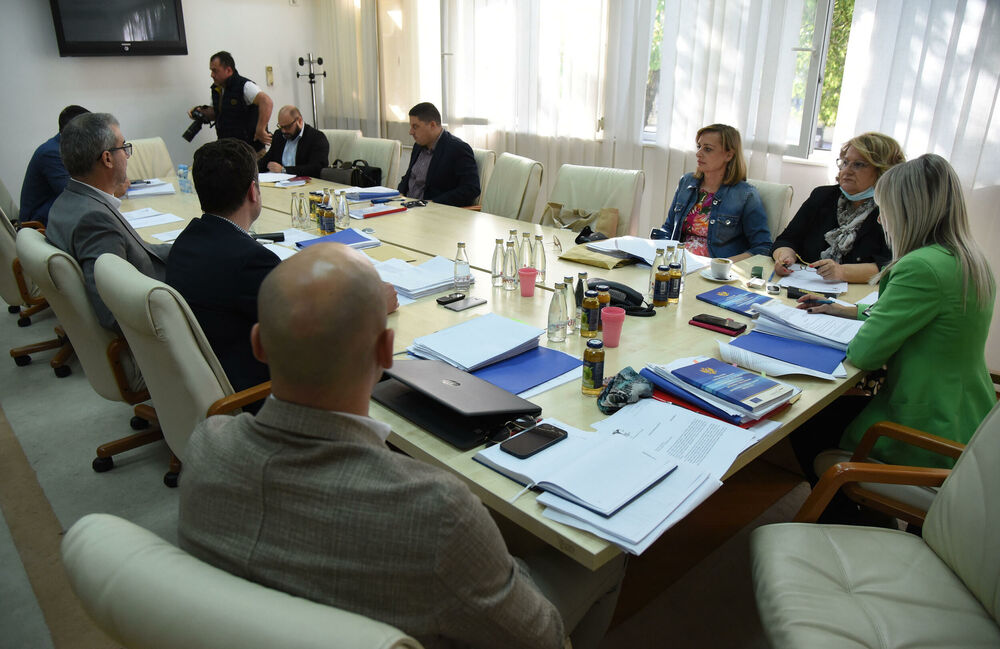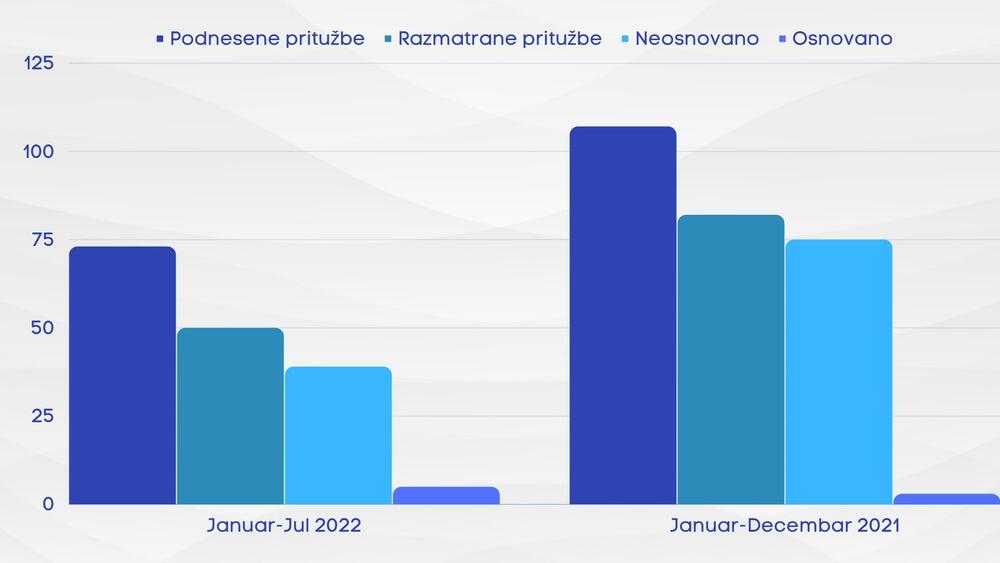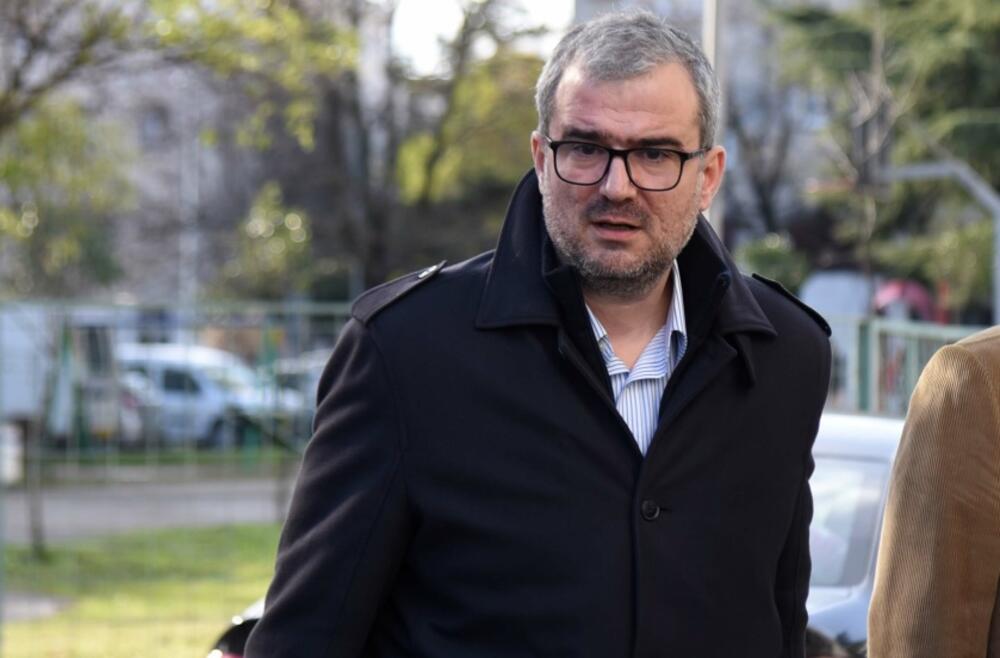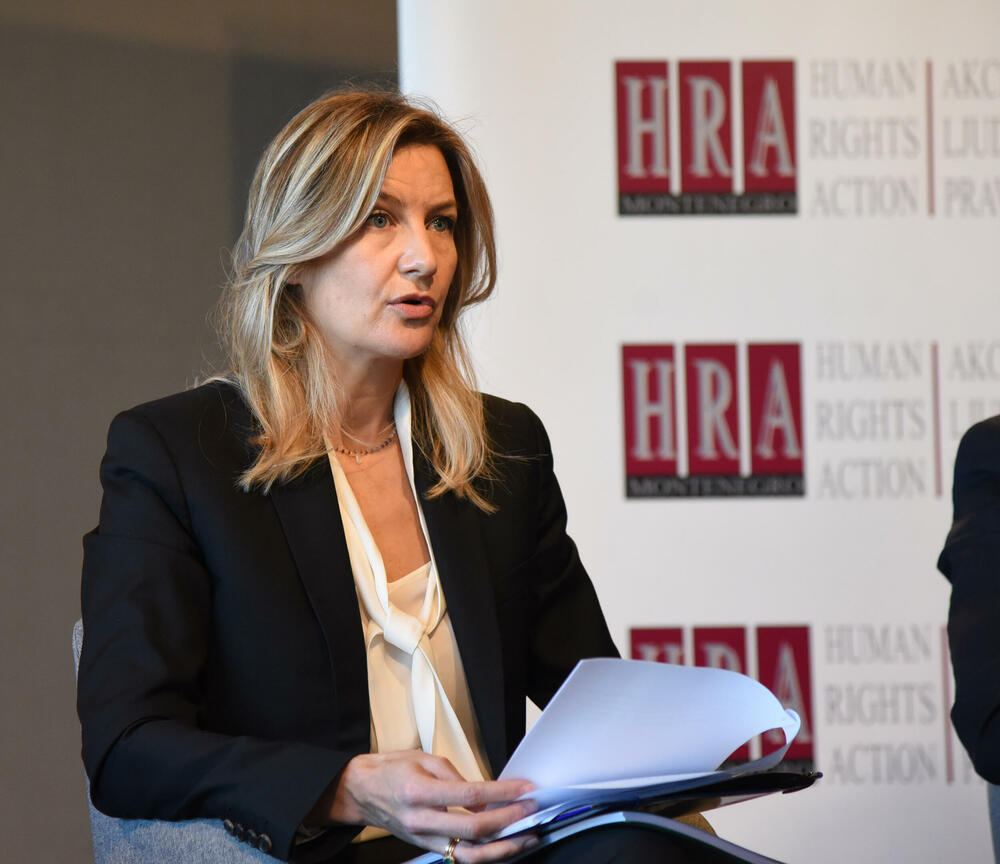Out of 46 complaints about the work of state prosecutors and heads of state prosecutions that were considered by the current Prosecutorial Council (TS) until the end of September this year, only six were founded, but there was no initiation of disciplinary proceedings against the prosecutors who acted in disputed cases.
The Supreme Court decided that 36 complaints were unfounded, one was treated as a criminal complaint, one was withdrawn, and two were forwarded to the Judicial Council, because they related to the work of judges. That's the data they have Center for Investigative Journalism of Montenegro (CIN-CG) and the Center for Civil Liberties (CEGAS) came with free access to information.
Member of TS and Complaints Commission Stevo Muk for CIN-CG says that, although there were well-founded complaints, disciplinary proceedings were not initiated against any prosecutor. Muk clarifies that the procedure can be initiated if the statute of limitations has occurred in the cases, the impossibility of conducting the procedure or other consequences prescribed by the Law on the State Prosecutor's Office. However, Muk points out, well-founded complaints could influence the evaluation of the work of those prosecutors.
All well-founded complaints related to the work of the prosecutors of the basic state prosecution offices, except for one, which related to the work of the prosecutor of the Special State Prosecutor's Office (SDT). Nataša Bošković.
In the complaint against the work of the prosecutor Bošković, it is stated that according to the criminal report, filed in June 2015, due to serious abuse of official position in business operations, no action was taken for six years! A criminal complaint was filed by a group of employees of the Podgorica branch of the company "Yumko" against the director Ljubomir Peković.
In the complaint, it is added that the prosecutor Bošković has not undertaken any investigative actions since taking over the case, because, as she told the workers in direct conversations, she was "busy with other cases".

"The plaintiff did not act within the deadlines prescribed by law, with the conclusion that the decision in the case was made on September 15, 2021, and as a result, the statute of limitations for the criminal prosecution did not apply," the TS decision reads.
The second well-founded complaint related to the work of the Deputy Basic State Prosecutor in Podgorica Ivan Petrušić Vukašević.
The Court of Justice warned in this case too that the deadlines for action had been missed and asked the prosecutor to intensify her work and make a decision in the case for the criminal offense of false reporting against ID, a high-ranking police official.
In the complaint against the work of the prosecutor Petrušić Vukašević, it is stated that in one year and three months she did not take any action that was required by law, that she did not even listen to the injured party in the proceedings, and that during all that time he did not receive any answer as to the stage of the proceedings and what was done.
"Given that this is a high-ranking police official, I hope that his current position does not affect the slow work of the prosecutor's office," the complaint reads.
Three well-founded complaints about the work of the prosecutor in Kotor
Three well-founded complaints relate to the work of the representative of the Basic State Prosecutor's Office in Kotor - two to the work of the former prosecutor Srđe Jovanović and one for the work of the plaintiff Marija Kazić.
TS assessed that part of the complaint against Jovanović's work in the case regarding the maritime accident, in which she died, was founded Maja Sljivancanin, and her fiance was injured Vladimir Stanisic.
The higher court in Podgorica overturned the first-instance verdict, by which the minor was convicted MS sentenced to a maximum of 120 hours of community service or humanitarian work. The accident happened in July 2020, in the sea between the island of Sveti Nikola and Jaz beach, when a yacht, driven by a minor, collided with a boat, on which Šljivančanin and Stanišić were.
"The actions of the acting prosecutor related to locating and pulling out the sunken boat, as well as informing the parties about the date and time of the undertaking, were not accompanied by an official act - an official record of the actions of the prosecutor", the TS decision states.
For the other part of the complaint, which refers to the illegal engagement of several experts, and the breathalyzer of the accident participants, the TS evaluated them as unfounded. It is clarified that an inspection of the case files revealed that only one maritime expert was engaged, and that the participants in the accident did not have alcohol in their blood.
Jovanović resigned in April of this year, after he was arrested on suspicion of abuse of official position by order of the SDT, because he allegedly hid the minutes in another case in order to enable two people from Tiv to be held liable only for misdemeanors and not criminal charges. beating of a Turkish citizen.

Acting Supreme State Prosecutor Maja Jovanovic then ordered that a commission be formed to examine all the cases that Jovanović was in charge of. By the way, he was the only prosecutor who received a good rating in the last 10 years, while all the others consistently received the highest ratings.
The second complaint, which referred to Jovanović, was accepted as founded by the TS.
In the complaint, it was pointed out that the prosecutor ignored several criminal charges for stalking, filming and violent behavior against the person, who is a multiple returnee and was treated at the Special Hospital for Psychiatry in Dobrota.
"My son and I feel threatened and fear for our lives and the lives of our families. We ask you to review the decisions of ODT Kotor and order that the procedure be initiated," the complaint reads.
A similar decision of the Court of Appeals was made following a complaint about the work of the Kotor prosecutor Marija Kazić. It is a case in which the complainant claims that his relatives illegally transferred the land to themselves and sold it, among other things, to the Municipality of Tivat, thereby damaging the other co-owners of the property. Instead of treating this as a criminal complaint, Kažić decided with an official note.
Lukovac and Rmandić in SDT
A complaint was founded, which also related to the work of the plaintiff ODT in Nikšić Sofia Lukovac was forwarded to the Special State Prosecutor's Office (STP) for assessment of whether she committed a criminal offense by acting unprofessionally during the investigation, after a father and son were killed in a traffic accident on the Nikšić - Plužine road in July 2018 - George i Vuk Masnić.
"During the investigation of the traffic accident, the prosecutor did not credibly state the established factual situation, as well as the material evidence, in the report of the investigation," the TS decision reads.
In the complaint of the family of the deceased, it is pointed out, among other things, that Lukovac stated in the minutes the presence of signs, even though the works on the road were completely unsecured, that she did not order a picture of that part of the road, from which it could be seen that there were no traffic signals, and that conducted the investigation without the presence of a traffic expert.
"There are strong indications that the facts and circumstances that were 'established' during the investigation were deliberately wrongly established and interpreted, in order to cover up the case, and the real culprit for the accident in which two people died was acquitted," the complaint says.
Also, a complaint about the work of the prosecutor of the Higher State Prosecutor's Office in Bijelo Polje Milice Rmandic, in which it is stated that she demanded money from the complainant and illegally interrogated his sons and that she imprisoned him, as she states, because he did not give her money, TS treated it as a criminal complaint and submitted it to the competent prosecutor's office for processing.
What is written in the regulations
According to the Code of Criminal Procedure (CPC), the prosecutor to whom the case has been assigned is obliged to make a decision no later than three months from the date of receipt of the case, except in complex cases, in which the deadline is extended by another three months. An exception is cases in which secret surveillance measures are carried out, when the decision must be made within three months from the end of those measures.
"In cases in which evidence was obtained based on requests for international legal assistance, the decision must be made within one month from the date of obtaining evidence based on requests," the CPC says.
In the abbreviated procedure, it is written in the CPC, the decision on the criminal report must be made within one month at the latest, and an extension of these deadlines can be requested for a maximum of one more month.
The prosecutor, after completing the investigation, within 15 days, according to the Law, files an indictment or suspends the investigation.
"If the investigation is not completed within six months, the state prosecutor is obliged to immediately inform the immediately senior state prosecutor about the reasons why the investigation has not been completed. The immediately senior state prosecutor will take the necessary measures to complete the investigation," the CPC reads.
However, in practice, these deadlines are often not respected, and prosecutors justify themselves with excessive caseloads.
Muk: The powers of the Council are unclear
Since August of last year, the Prosecutor's Council did not have the necessary majority of members to function, so the Complaints Commission was established only in March of this year, after the TS was completed. They make her prosecutors Tatjana Begović i Sanja Jovićević and member of the Council proposed by non-governmental organizations Stevo Muk.
Muk for CIN-CG assesses that the competences of the Council are vague in the part of consideration of complaints.
"In this sense, the improvement of the law is necessary. It is possible that the law can be improved so that some of the complaints, at least in the first instance, are resolved at the level of the heads of the state prosecutor's offices", says Muk.
Muk said that well-founded complaints could affect the evaluation of prosecutors, taking into account the Evaluation Rules. He reminds that the proposal for the evaluation of the work is given by the evaluation councils made up of state prosecutors, and the TS Evaluation Commission formally approves it, after familiarization with the proposal and the explanation.

The rules for evaluating prosecutors and heads of state prosecutor's offices stipulate that if it is determined that one of them does not comply with the legal deadlines, he can be evaluated and the evaluation is not satisfactory. The rules also stipulate that if the prosecutor does not have good communication with the parties, he can get a worse rating, even the worst.
Muk adds that, since the beginning of the work of the Complaints Commission, and especially since the adoption of amendments to the Rules of Procedure of the TS, the explanations of decisions on complaints have been improved and that they will be of even better quality in the future.
He reminds that TS has no right to assess whether the prosecutor made a correct decision within the framework of free belief. It concludes that efforts must be made to provide better information to citizens regarding their rights in relation to the decisions and work of the state prosecutor's office, because there is an obvious disparity between the number of complaints submitted and those judged to be well-founded.
"The vast majority of complaints are filed for reasons that are not justified. It is possible that sometimes they are led to file complaints by their legal representatives, who raise their expectations or misinterpret the possibilities offered by this mechanism", Muk assessed.
In the semi-annual report of TS, it is written that, from January to July of this year, they considered 50 complaints, of which 47 were from the previous year. "... 29 complaints related to the work of basic state prosecutor's offices, 11 to the work of higher prosecutor's offices, seven to the work of the Special Prosecutor's Office, and two to the work of the Supreme State Prosecutor's Office," the report says.
In the first half of this year, 73 complaints were filed against the work of prosecutors and heads of state prosecution offices.
HRA: Complaints are ineffective
As in previous years, complaints were not an effective means of determining the disciplinary responsibility of state prosecutors in 2022 either, it is pointed out in the report of the Action for Human Rights (HRA), which analyzed the work of the TS from January to July this year. The HRA report emphasizes that none of the adopted complaints led to the initiation of disciplinary proceedings or proceedings for violation of the Code of Ethics, and that this practice additionally indicates the necessity of changing the legal descriptions of disciplinary offenses.
Disciplinary sanctions, according to the Law on the State Prosecutor's Office, are a warning, a fine, a ban on promotion and dismissal, and a proposal for determining disciplinary responsibility can be submitted by the heads of prosecution offices, the Minister of Justice and the Commission for Monitoring the Implementation of the Code of Ethics for State Prosecutors.
As a positive development in the HRA report, it is stated that the Council changed the Rules of Procedure and introduced a deadline of 90 days for deciding on complaints. It is added that the procedure for reviewing complaints has also been specified, which should improve the practice.
"Until the amendments to the Rules of Procedure on May 31, 2022, the previous bad practice continued and the council did not justify decisions based on complaints," the HRA report says.
However, there were still a number of cases where a complaint was decided without providing a basic rationale, the report said.

The Council continued to act on complaints related to the dismissal of criminal charges, although, as the HRA claims, this is not within its jurisdiction.
"Such practice has begun to be accepted by the state prosecutor's office, which has undermined legal certainty," the report points out.
Director of HRA Tea Gorjanc Prelevic points out that, judging by the past practice of both the old and new TS, about 90 percent of complaints are unfounded, but in order for citizens to get the impression that their complaint was thoroughly investigated, they would have to receive a reasoned conclusion about why it was not: However, those decisions are still, in most cases, insufficiently reasoned."
She adds that in the case of Lukovac, the competent prosecutor's office has not yet declared whether it will initiate criminal proceedings or not.
The director of the HRA reminds that this complaint was rejected by the previous composition of the TS, and the new one again declared about it and determined that it was founded.
She, however, emphasizes that the new TS did not improve the timeliness compared to the previous one, but in the same period of time decided on three times fewer complaints than the previous composition: "In some cases, the decision was waited for more than a year".
"TS should find a way to improve promptness and provide appropriate explanations for its decisions," concludes Gorjanc Prelevic.
Form a commission for the examination of obsolescence
Gorjanc Prelevic points out that the issue of statute of limitations for criminal prosecution is extremely important and that the Court of Justice should establish a special commission to investigate the reasons for the statute of limitations.
"In order to determine the eventual responsibility of state prosecutors or police officers for preventing the administration of justice," she stated.
The new TS has not yet dealt with the problem of rejecting more than 90 percent of criminal reports from previous years due to the onset of the statute of limitations for criminal prosecution, and only one state prosecutor was disciplined for this.
The HRA also recommends that the obligation to publish complete information on the statute of limitations for criminal prosecution, including judgments rejecting charges for this reason, be prescribed.

Bonus video:




